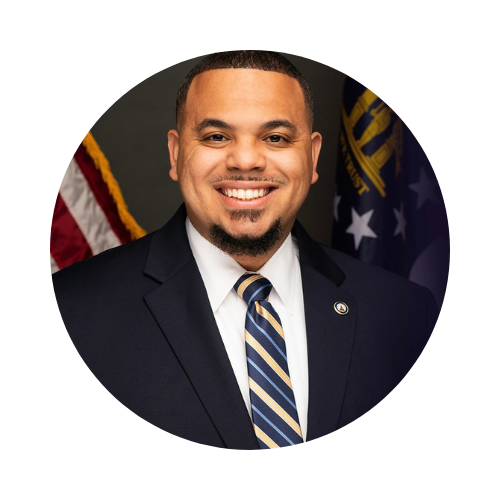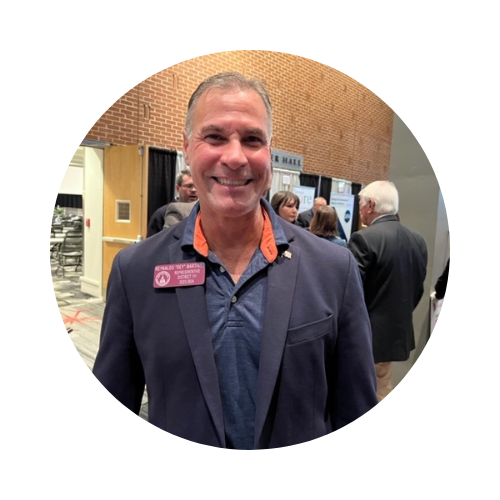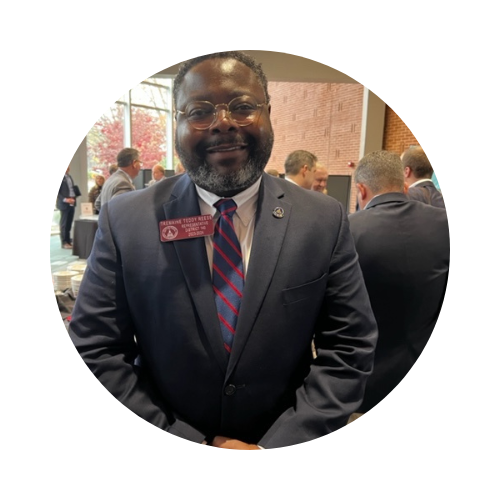Stay ahead of the curve as a political insider with deep policy analysis, daily briefings and policy-shaping tools.
Request a DemoNew lawmakers make up most diverse legislative group in recent history

The Gist
The Georgia 2023 Legislative session convenes Monday with one of the largest, most diverse groups of newcomers ever to assemble under the Gold Dome.
The Senate will have 10 new members while the House will have 43 newcomers.
Both the House and Senate will have new leadership, as well as a new Speaker of the House for the first time in 12 years.
All told, the General Assembly will have 155 men and 81 women, 151 of whom are white and 83 of whom are people of color, including immigrants from Nigeria, the Caribbean, and Bangladesh. There will also be bipartisan Asian American Pacific Islander (AAPI) and Hispanic caucuses for the first time. The 236-member Georgia General Assembly is the third largest in the nation, according to the National Conference of State Legislatures.
What’s Happening
What does all of this change in leadership and increased diversity mean when it comes to shaping policies and procedures under the Dome?
“It’s probably a better reflection of the makeup of the state because Georgia has become a very diverse state,” said Larry “Butch” Parrish, R-Swainsboro, a retired pharmacist who will be one of the longest-serving lawmakers when he begins his 39th session Monday. “They’ll be bringing diverse ideas and everybody sort of has their own idea of what’s important to them and what they would like to work on. So I think it’ll be an interesting session and mix.”
New Rep.-elect Long Tran (pronounced “Chang”) hopes the greater diversity “will lead to legislation that will benefit some of the minority communities while at the same time solving some of the labor shortage our industries are facing.”
Tran, a Democrat representing District 80, which includes Doraville and parts of north DeKalb, said he wants to see the Legislature tackle immigration challenges, such as those hindering Georgia’s estimated 20,000 young immigrants — including Latinx, Africans and Asians — enrolled in the Deferred Action for Childhood Arrivals program, better known as DACA. Many were raised and educated here, but are banned from being able to get in-state tuition for college.
“Personally, I would like to see anyone who graduates from a Georgia high school be given in-state tuition,” Tran said.
Why It Matters
Monday will mark the beginning of the 2023 legislative session — and the start of a beehive of activity, including legislators being sworn in and electing new leadership. Your representatives in the Statehouse will spend this year’s legislative session considering proposed laws, any constitutional amendments that could come up as well as the state budget proposed by the governor.
State lawmakers will earn an annual salary of $22,341 for 40 days of work during the 2023 legislative session, which runs until early April, thanks to a $5,000 raise. The financial boost is the first in a decade. Even with the raise, the annual base pay doesn’t begin to compare with legislators in Alaska or Alabama, who earned $53,956 and $50,400 in 2022, respectively.
Many legislators will also work on researching issues and meeting with constituents, lobbyists and other issue advocates throughout the year, in addition to maintaining their regular jobs. Occupations held by this year’s class range from small business owners, lawyers, doctors, and business consultants to a priest and a truck driver who’s also an auctioneer.
What’s Next
Legislative aide Jonathan Harris, who has been at the Statehouse since 2015, offered the following advice to new legislators: “Learn the lay of the land and what issues they want to work on. Get a team in place and have that team do the work for them because they’re going to be new for 40 days. As that 21st day comes, that’s when the session starts getting longer. So with a new speaker in the House and new leadership, it’s going to be an interesting session,” said Harris.
A sampling of new lawmakers
State Affairs spoke with some of the newcomers to the Capitol to find out their concerns, legislative priorities, and what’s driving their public service. Learn about them here:

Nabilah Islam (D), 33, small business owner and political consultant.
Senator, District 7 (includes Peachtree Corners, Norcross, Suwanee, Duluth and Lawrenceville.)
Notable: First Muslim woman and first South Asian woman to be elected to the Georgia senate.
What prompted you to get into public service: I grew up in Gwinnett County which is the fourth-most diverse county in America and I never saw representation that looked like our community. It’s important to have folks in positions of power that have a shared lived experience with their community, and I wanted to step up and represent my district so that they can have a full voice at the table.
Top three issues or concerns: Health care is near and dear to my heart. It’s a human right. We need to expand Medicaid in Georgia. We need to protect abortion rights, fully fund our public schools and expand access to the ballot.
Are you planning to introduce, sponsor or co-sponsor any legislation: I’m going to be working diligently with my colleagues to sponsor and introduce legislation that will increase the ability for people to have health care and protect abortion rights and make sure that our schools and teachers have the proper funding they need.
Committees you’d like to serve on: Education is definitely a priority of mine; Health & Human Service and Regulated Industries.

Derek Mallow (D), 33, chief executive, East Savannah United.
Senator, District 2 (includes parts of Chatham County, including Savannah, Garden City, Port Wentworth and Thunderbolt.)
Notable: Mallow is new to the Senate but he spent the last two years as a House representative for District 163.
What prompted you to get into public service: My family has been around for a long time in the Pinpoint and Sandfly communities. Pinpoint is a Gullah Geechee community. Growing up poor, I understood poverty. I looked at poverty from the perspective of not having enough. When I got into public service, I wanted to make some changes. I grew up without having investment in my community.
Top three issues or concerns: I’m going to talk about affordable housing, expansion of Medicaid, and economic mobility in the state. Less than 1% of all business contracts in the state were minority businesses. I’m concerned about that because we say we’re the No. 1 state [in the nation] to do business. I should see a lot more Black people at the table than I see today. And that’s not knocking anybody.
Are you planning to introduce, sponsor or co-sponsor any legislation: I do have some legislation I intend to put forward to address affordable housing. I did a rental tax credit bill last session that I thought was a unique way since we couldn’t get an earned income tax credit so that we could promote homeownership in the state and give people a refund. If they were renters instead of homeowners, it was a small $50 refund but it was something people could invest to potentially buy a home. So I’ll be looking at that again this year.
Committees you’d like to serve on: Economic Development and Tourism, Transportation, Health and Human Services, Higher Education, as well as Judiciary.

Reynaldo “Rey” Martinez (R), 53, small business owner.
Representative, District 111 (includes Dacula, Walton County)
Notable: One of four new Latino and Hispanic lawmakers. Former mayor of Loganville where he also served on the City Council.
What prompted you to run for a state-level position: I’ve always enjoyed serving, whether it’s local politics or the military. I served 25 years before retiring from the military.
When the [current Representative] Tom Kirby decided to retire, I decided to do it.
Top three issues or concerns: When I was mayor, one of the biggest challenges — as with many cities — is transportation. I’m going to try to work for transportation for Gwinnett County, which is growing and some of that growth is going into Walton County. So transportation is one of the big issues.
Are you planning to introduce, sponsor or co-sponsor any legislation: Not yet. I’m going to talk to the leadership. Right now, it’s just about building relationships.
Committees you’d like to serve on: As a veteran, one of the things I’d like to be a part of is the Veterans Committee. The Agriculture Committee. Even though it’s considered the metro[Atlanta] area, Walton County is still a big Ag county and I want to represent my constituents.

Colton Moore (R), 29, auctioneer, cattle truck and dump truck driver, and co-owner of the family bulldozing and trucking business in Dade County.
Senator, District 53 (in northwest Georgia, including Dade, Walker, Catoosa, Chattooga, Floyd counties)
Notable: Served as the House representative for Dade and Walker counties from 2018-2020. Was a top 20 finalist at the International Auctioneers Championship in 2017, and says these skills come in handy as a politician since “like auctioneering, politics is a marketing scheme.”
What prompted you to get into public service: I learned at a young age that elected officials could do good or bad things, and I saw a lot of public officials growing up do a lot of bad things, so I hope to be a change to that.
Top three issues or concerns: First, a reduction in income taxes due to the intense inflation that people in my district are experiencing. Second, election integrity. I still do not believe that our elections system is in proper order. Senate Bill 202 just did not do enough. My third priority is going to be gun rights.
Are you planning to introduce, sponsor or co-sponsor any legislation?
I am drafting the Second Amendment Preservation Act. I’ll be pushing hard for a bill called Defend The Guard Act. I think our national guard troops should be used for other things than a rogue president who might send them to Ukraine. I’m also working on a bill to fully repeal Certificate of Need. A hospital shouldn’t need permission from the government to set up shop. My constituents would like to see multiple hospitals in the area competing with each other.
Committees you’d like to serve on: Transportation, Public Safety, Natural Resources. And I’m vying for chair of Interstate Cooperation.

Tremaine “Teddy” Reese (D), 42, lawyer practicing civil litigation in his own firm.
Representative, District 140 (includes Columbus)
Notable: Reese is taking over the seat long held by stalwart Democrat Calvin Smyre, who stepped down last year after 48 years at the Capitol.
What prompted you to get into public service: I got some experience serving as class president at Albany State University, and I served as president of the student bar association while at Florida A&M College of Law. I was national chair of the ABA law student division, where I was the face and voice of 179,000 law students nationwide and in charge of a $2.5 million budget. It also stems back to just family teachings, of helping the community where I can. I’m hoping my term as a legislator, as historic as it is for me and my family since I’m the first in my family to go to college, will be a great opportunity for me to make a difference.
Top three issues or concerns: One would be public education funding. We can’t expect our state to remain as strong as it currently is if we continue this downward trend of investing in public education. Our teachers need more resources to teach our children. It’s the best investment we can make as Georgians, to invest in our young folks. My second priority is to make sure our seniors are taken care of. It hurts my heart to see my grandmother struggle to determine whether she’s going to pay her bills or buy prescriptions, and I often have to step in and help her financially. That just shouldn’t be. My third focus will be on our veterans. We have a consistently rising rate of suicide among our veterans, as well as veteran homelessness.
Are you planning to introduce, sponsor or co-sponsor any legislation: Not yet. I’m very new so there’s a lot for me to learn. I need to get on the inside and get to talking with my colleagues and find out where our common interests lie. We’ll call that low-hanging fruit and we’ll work together on it.
Committees you’d like to serve on: I don’t want to be jinxed because I’ve put the request in for a few committees. As an attorney I might want to work in the judicial committee area. Considering I was born and raised in rural Georgia, agriculture is important to me. I talked about my passion for education. The committees I’ve requested align with my passion and the work that I’ve done historically.

Lehman Franklin III (R), 47, general manager of an auto dealership.
Representative, District 160 (includes Statesboro and Bulloch and Bryan counties )
Notable: The huge Hyundai electric vehicle plant is in his district, and requires massive planning around economic development, infrastructure, and environmental concerns affecting farmers and residents in the area.
What prompted you to get into public service: ‘Service before self’ has been one of the tenets of my life that I learned at The Citadel, practiced preaching the gospel as a missionary, and will bring to the table as a state representative.
Top three issues or concerns: Economic development, education, and infrastructure planning and development.
Are you planning to introduce, sponsor or co-sponsor any legislation: I will work to expand funding for job training programs to help give skilled workers a leg up and enhance their take-home pay … As our industries continue to grow in our region, we need to find innovative ways to make transportation and travel more advanced. This includes providing charging stations as the use of electric vehicles expands … I will work to cut taxes on hardworking Georgia families. Government is big enough.
What else would you like to know or share about legislators in Georgia? Contact Tammy Joyner on Twitter @LVJOYNER or at [email protected], and Jill Jordan Sieder on Twitter @JOURNALISTAJILL or at [email protected].
Twitter @STATEAFFAIRSGA
Facebook @STATEAFFAIRSUS
LinkedIn @STATEAFFAIRS
Header photo: Members of the Georgia House of Representatives enjoy a moment of celebration on Crossover Day, March 15, 2022. (Credit: Georgia House of Representatives)
Correction: This story has been updated to correct the age of Representative Tremaine “Teddy” Reese.
Professionals still face licensing delays amid state’s transition to online system
The Gist Georgia’s professionals and business owners are still struggling to obtain professional licenses in a timely manner. As the Secretary of State’s Office rolls out its new Georgia Online Application Licensing System to expedite the process, the efficiency of this new process is being put to the test. What’s Happening Thursday morning at the …
Controversy over AP African American Studies class grows
Rashad Brown has been teaching Advanced Placement African American Studies at Atlanta’s Maynard Jackson High School for three years. He’ll continue to do so — even though the state’s top education official removed it from the list of state-funded course offerings for the upcoming school year. While Brown prepares to start teaching his class on …
Students, teachers, lawmakers blast decision to end AP African American history classes
ATLANTA — A coalition of lawmakers, civil rights leaders, clergy, educators and students Wednesday called on the state’s education czar to rescind his decision to drop an advanced placement African American studies class from the state’s curriculum for the upcoming school year. “This decision is the latest attack in a long-running GOP assault on Georgia’s …
Kamala Harris’ presidential bid reinvigorates Georgia Democrats
Georgia Democrats have gained new momentum heading into the November election, propelled by President Joe Biden’s decision to bow out of his reelection bid and hand the reins to Vice President Kamala Harris. The historic decision, announced Sunday, is expected to prove pivotal in the national and state political arenas and breathe new life and …



